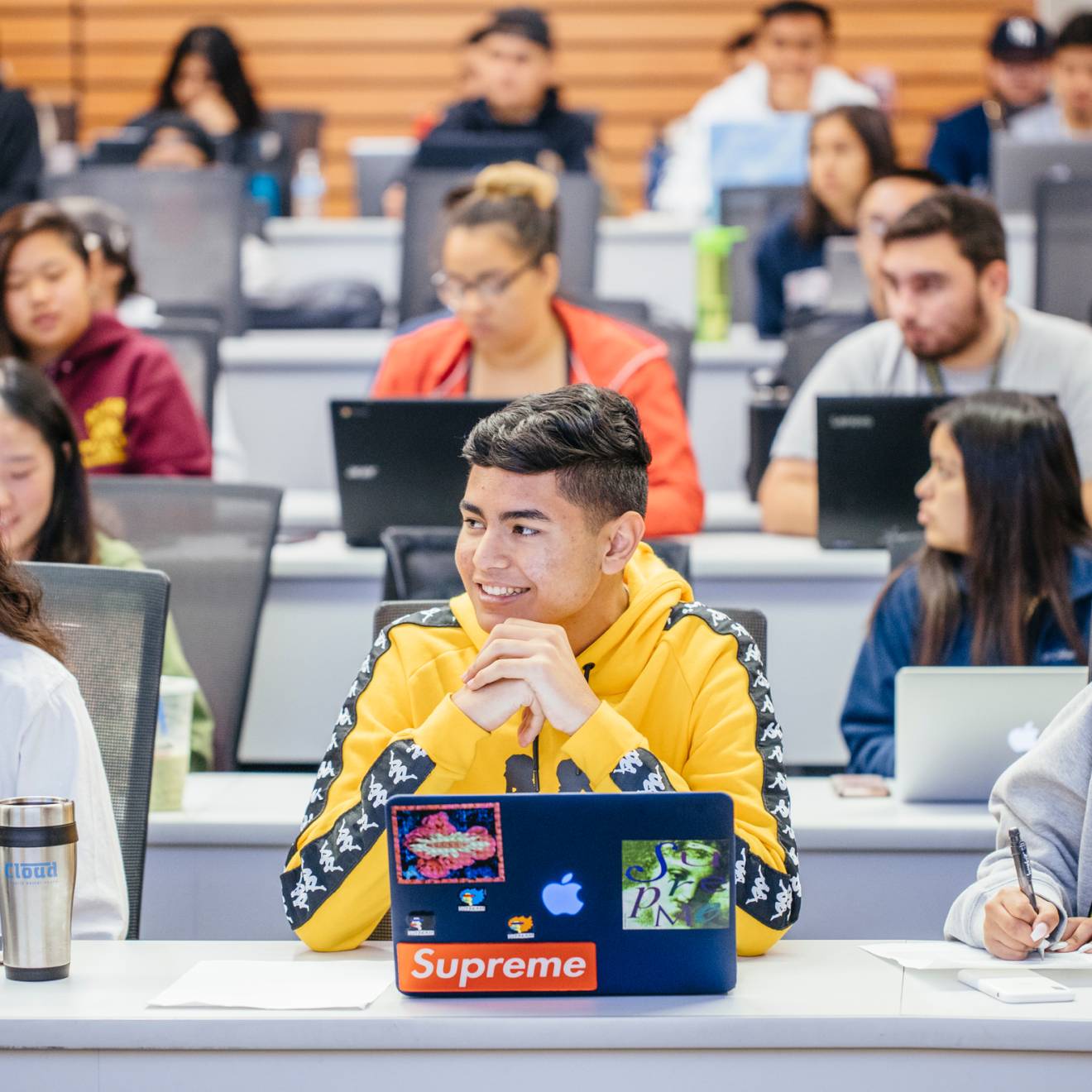Apollonia Morrill, UC Newsroom
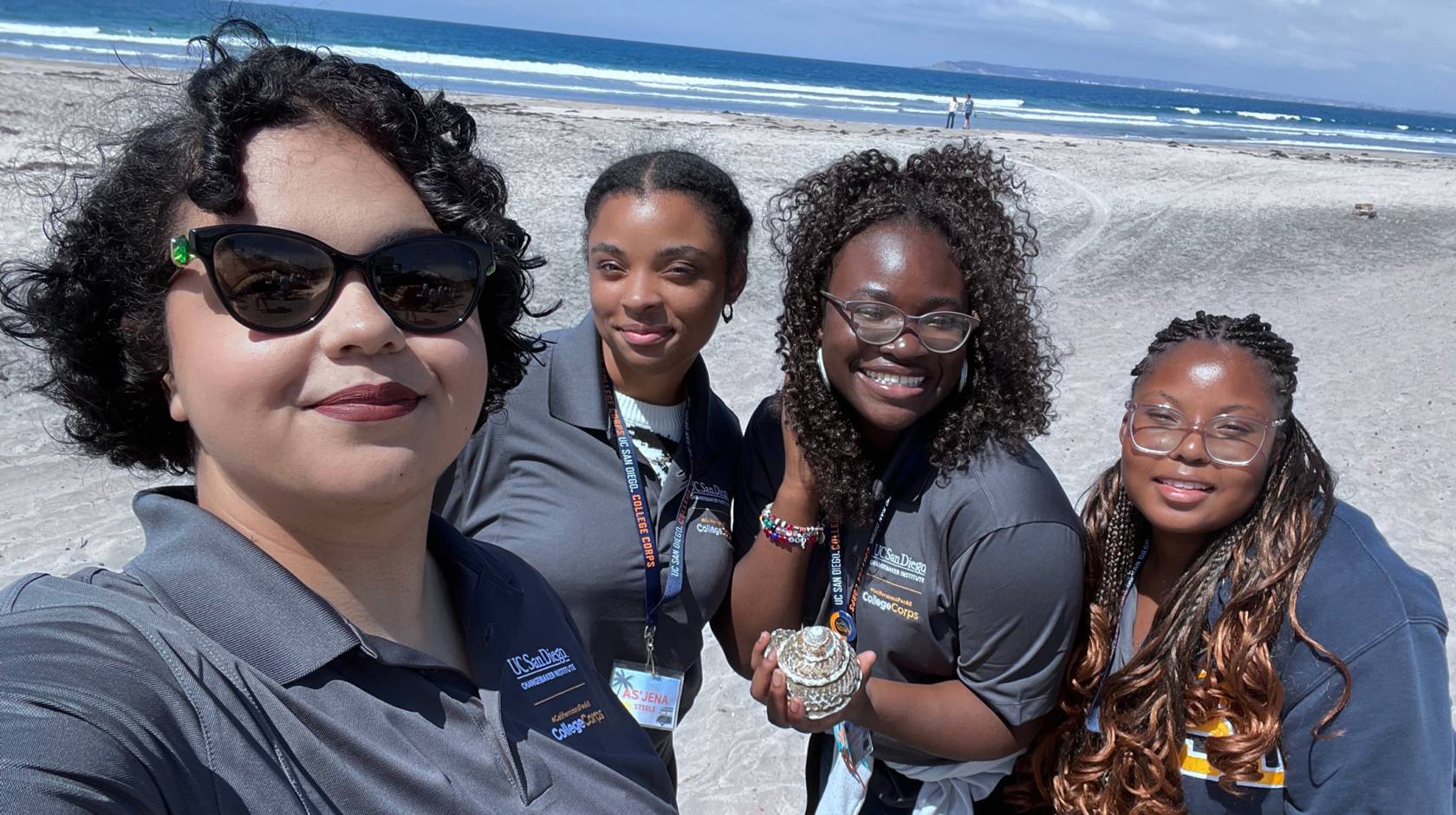
When he first applied to be a College Corps fellow, Nick Casis was working as an usher at the UC Irvine events center and contemplating applying for a second job in food service at the mall next door.
“I didn’t have the income I needed to be able to pay my rent, so I was looking to get more hours from another source. If it wasn’t for College Corps, I would have spent my time that way instead.” Fortunately, College Corps came through, and Casis got financial help, job skills and a whole new perspective on his future.
Kicked off in 2022 by California Volunteers and the California Office of the Governor, College Corps is connecting some 10,000 students from 44 colleges up and down the state with hundreds of local nonprofits in three crucial areas for California: K–12 education, climate action and food insecurity. As program fellows, the students commit to logging a whopping 450 volunteer hours with their community organizations over the course of the school year.
In return, they receive a living stipend of $7,000. When they hit their 450 hours, they get an additional $3,000 education award.
The students gain job skills, real-world work experience and funds for their education that help them graduate on time and with less debt. The nonprofits benefit from a base of committed, energetic volunteers. The campuses build local connections while finding new ways to support and engage students. And the state gets stronger communities, boosted engagement around critical issues and a new crop of civic leaders who will soon bring their talents and diplomas to California’s workforce. It’s a win-win-win-win situation.
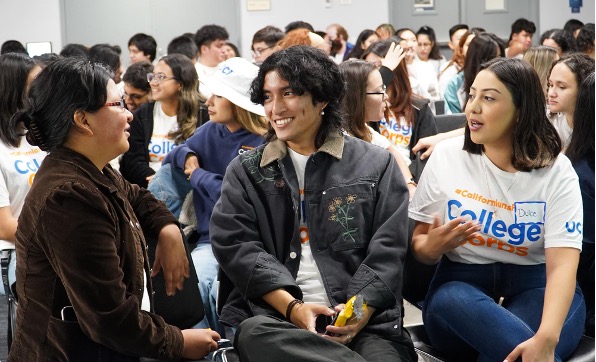
Giving and growing
It may seem counterintuitive to offer money in exchange for volunteering, but College Corps was created with the kind of students in mind who can’t afford to volunteer. Low-income students and those who are among the first generation in their families to go to a four-year college — who respectively make up 40 and 38 percent of UC’s 2025 graduating class — often struggle to pay for school. Working your way through college might be a necessity, but many of the available jobs don’t lead to the kind of skill development students will need in their careers. While these students are often civic-minded, between work and school, there is simply no time to volunteer.
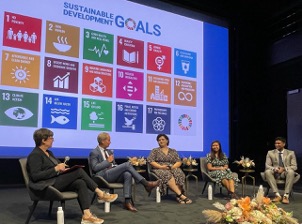
UC San Diego College Corps fellow Alesia Andrade (center) on a panel discussion on sustainable development with United Nations European Union Ambassador Olaf Skoog (second from left).
With its financial incentive, College Corps offers low-income students an avenue to fund their education while developing job skills and building professional networks. UC Berkeley, UC Davis, UC Irvine, UC Merced, UCLA, UC Riverside and UC San Diego all participate in the program. While the details vary slightly at each campus, they all offer professional development workshops, community building activities for their student cohorts and class credit opportunities. Each fellow works with a site supervisor at their nonprofit, who often becomes a mentor. “It starts them out with a real, solid connection, someone who’s seen their work and knows how they’ve grown over the course of a year,” says Carrie Donovan, director of strategic initiatives at the UC Berkeley Public Service Center. Site coordinators often write job and grad school references for students or even hire them on after graduation.
Students emerge from their fellowships with the soft skills they need to enter the job market. “When they graduate, they’ll have a skillset that they wouldn’t have if they had just done transactional work,” says Sherwynn Umali, deputy chief of staff for Student Affairs at UC Irvine. “They gain a lot of interpersonal growth, develop a professional work ethic and learn essential communication skills in work environments that can be challenging. These are skills that can be applied to whatever they do next.”
Staff in the UC College Corps offices also work closely with the community organizations to make sure partner needs are met. “It’s an incredible experience for students, but also for the community host partners, particularly at a time when their budgets are being severely impacted,” notes Umali.
Connecting the personal and the professional
In many cases, College Corps fellows work on issues that hit close to home. “Through College Corps, students are able to connect to areas they are passionate about where they can really make change,” says Donovan. “Our students have a lot of financial need, and they tend to be affected by the same issues our partner organizations are working on. They have personal knowledge and can really jump in and be involved.”
Umali echoes the sentiment: “Many students are able to help in communities that look like the ones they came from. I’ve had students share that they were unhoused themselves as kids. They know what it feels like to be in that situation. And now as college students, they are able to get a different perspective of helping families and kids in the spaces they might have occupied when they were unhoused themselves.”
Take Casis, for instance. For his two years with College Corps, he was partnered with UC Irvine’s Basic Needs Center. It’s a campus hub that helps students with food and housing insecurity, including an on-site food pantry, a diaper bank for student parents and more. Casis helped on the operations side, becoming a lead fellow in his final year.
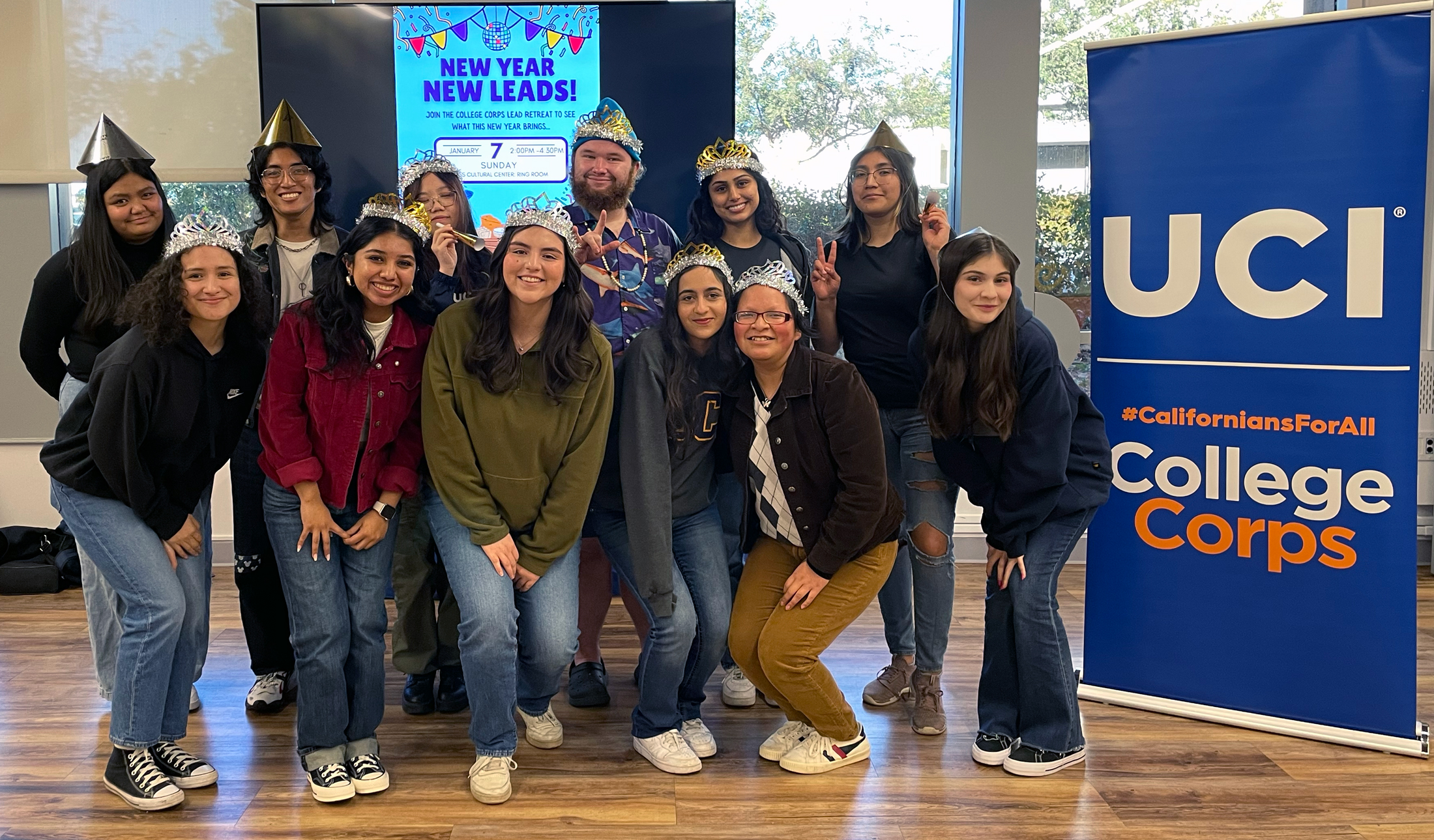
“My parents both grew up in poverty. My mom would tell us stories about when she went to college and how she had to sacrifice meals in order to afford it. She would pass by delicious-smelling food stalls on the way to school, but she could not afford to eat. I had a similar experience in high school. So being able to help people with food insecurity as part of College Corps, it kind of healed part of my heart in a very emotional way.”
The experience also shaped his academic and career plans. He started college aiming to become a therapist, but through College Corps became more interested in housing and food insecurity. “My work for College Corps led me down this huge rabbit hole of learning about the interconnected issues with food, transportation, city planning and environmental justice and why, in the United States, we can produce so much food but not have the capacity to solve hunger,” he says. “It pushed me to look more at local government, because that’s where a lot of immediate change comes into play.”
Casis graduated debt-free in 2024. His College Corps experience helped him get a summer internship with the Torrance city manager’s office after graduation, which then led to a job with the city housing authority and Section 8 office, where he now works. He plans to apply to graduate school in urban planning next year.
Graduating with pride as civic leaders
Back at UC Irvine, Umali describes the scene at graduation for students like Casis and Andrade: “When folks graduate, they have these stoles that they wear, and they'll have stacks of these stoles representing their different activities. I’ve seen so many of our graduates put the College Corps stole on the front. It’s their top one. Maybe because it’s the most salient to them, maybe because it impacted them in deeper ways than anything else they did in college.”

